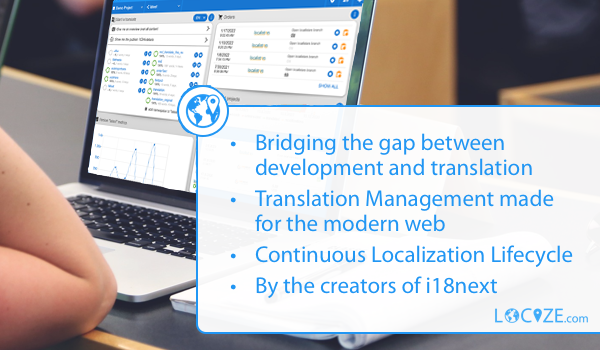# Introduction
[](https://github.com/i18next/i18next-resources-to-backend/actions?query=workflow%3Anode)
[](https://github.com/i18next/i18next-resources-to-backend/actions?query=workflow%3Adeno)
[](https://www.npmjs.com/package/i18next-resources-to-backend)
This package helps to transform resources to an i18next backend. To be used in Node.js, in the browser and for Deno.
# Getting started
Source can be loaded via [npm](https://www.npmjs.com/package/i18next-resources-to-backend).
```bash
# npm package
$ npm install i18next-resources-to-backend
```
Wiring up:
```js
import i18next from 'i18next'
import ChainedBackend from 'i18next-chained-backend'
import resourcesToBackend from 'i18next-resources-to-backend'
import HttpBackend from 'i18next-http-backend'
i18next.use(ChainedBackend).init({
backend: {
backends: [
HttpBackend, // if a namespace can't be loaded via normal http-backend loadPath, then the inMemoryLocalBackend will try to return the correct resources
resourcesToBackend({
en: {
translations: {
sayHi: 'hello world'
}
}
})
],
backendOptions: [{
loadPath: 'http://localhost:8080/locales/{{lng}}/{{ns}}.json'
}]
}
})
```
for Deno:
```js
import i18next from 'https://deno.land/x/i18next/index.js'
import ChainedBackend from 'https://deno.land/x/i18next_chained_backend/index.js'
import resourcesToBackend from 'https://deno.land/x/i18next_resources_to_backend/index.js'
import HttpBackend from 'https://deno.land/x/i18next_http_backend/index.js'
i18next.use(ChainedBackend).init({
backend: {
backends: [
HttpBackend, // if a namespace can't be loaded via normal http-backend loadPath, then the inMemoryLocalBackend will try to return the correct resources
resourcesToBackend({
en: {
translations: {
sayHi: 'hello world'
}
}
})
],
backendOptions: [{
loadPath: 'http://localhost:8080/locales/{{lng}}/{{ns}}.json'
}]
}
})
```
## you can also lazy load the in memory translations, i.e. when using webpack:
```js
i18next.use(ChainedBackend).init({
backend: {
backends: [
HttpBackend, // if a namespace can't be loaded via normal http-backend loadPath, then the inMemoryLocalBackend will try to return the correct resources
// with dynamic import, you have to use the "default" key of the module ( https://developer.mozilla.org/en-US/docs/Web/JavaScript/Reference/Statements/import#importing_defaults )
resourcesToBackend((language, namespace) => import(`./locales/${language}/${namespace}.json`))
// resourcesToBackend((language, namespace, callback) => {
// import(`./locales/${language}/${namespace}.json`)
// .then(({ default: resources }) => {
// callback(null, resources)
// })
// .catch((error) => {
// callback(error, null)
// })
// })
],
backendOptions: [{
loadPath: 'http://localhost:8080/locales/{{lng}}/{{ns}}.json'
}]
}
})
```
---
Gold Sponsors

---
**From the creators of i18next: localization as a service - locize.com**
A translation management system built around the i18next ecosystem - [locize.com](https://locize.com).

With using [locize](http://locize.com/?utm_source=react_i18next_readme&utm_medium=github) you directly support the future of i18next.
---
